Missing persons’ cases: SHC wants policemen investigated
Bench directs provincial task force to probe allegations of bribery
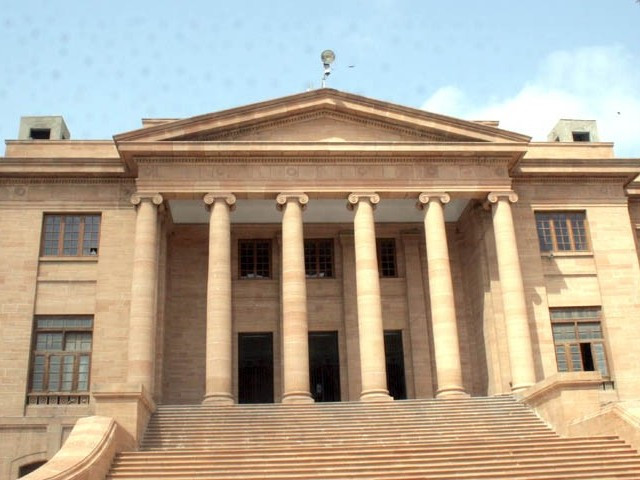
PHOTO: EXPRESS
The judges directed additional home secretary Noor Muhammad Shah to inform the court about the latest developments regarding whether the matter had been referred to the joint investigation team. The secretary will submit his reply by May 30.
Petitioner Muhammad Shafi said the police took away his sons, Muhammad Sharif and Muhammad Yousuf, both labourers, from his Scot Colony residence on September 29, 2014. He added that the police later released Yousuf but Sharif was still kept in unlawful custody.
The father said he filed a case against his son's detention with the SHC on whose directives a kidnapping case was lodged against Mobina Town police officials.
After this, Sachal SHO agreed to release Muhammad Sharif but asked the petitioner to withdraw his petition first. When the petitioner took back his case, the official demanded Rs0.5 million for his son's release. Otherwise, the SHO threatened the detainee will be killed. The petitioner pleaded to the court to order release of his son from the alleged illegal police custody.
On the last hearing, the bench had directed the home secretary to refer the matter to the provincial task force constituted to probe into missing persons' cases, but no report was filed.
Another case
The same bench also directed the state counsel to call comments from the provincial authorities regarding the detention of a missing person due to non-payment of bribe by his family by May 30.
The petitioner, Abdul Samad, had alleged that the Mochko police had picked up his son Saddam and other relatives from Rangi Wara in Lyari in March.
He alleged that detainees were shifted to the Mochko police station in an official vehicle, after which Rs1 million was demanded for their release. Reducing the 'ransom' to Rs0.1 million, the officials threatened to hand over the detainees to the 'special torture cell' if the amount was not paid.
Upon non-payment of the bribe, the officials shifted the detainees to the Saeedabad police station.

The petitioner pleaded to the court to order action against the officials.
Task force on missing persons
The same bench, meanwhile, directed provincial law officer Jan Mohammad Khoro to file the report of the provincial task force for missing persons, which is scheduled to meet on May 4 to investigate a disappearance.
The petitioner, Sher Muhammad, said his son was employed as a dissection hall attendant at the Shaheed Mohtarma Benazir Bhutto Medical College, Lyari, from where law enforcement agencies personnel took him away in an official vehicle on February 2, 2015.
Arguing that such detention without any charge was against the fundamental rights of citizens, the petitioner's lawyer pleaded to the court to order the law enforcers to produce the detainee in court.
On Monday, the investigation officer, sub-inspector Waheed Iqbal of Chakiwara, filed a progress report saying the alleged missing person, Faraz Khan Baloch, was neither arrested nor detained at any police stations in Lyari division.
SHO's arrest warrant issued
The same bench issued bailable warrants for arrest of the Garden police SHO for a sum of Rs25,000 with direction to the relevant SSP to arrest and produce the suspects by May 30.
The petitioner, Naseem Begum, had alleged that Rangers had taken away her 25-year-old son, Muhammad Aadil, from his house in Shoe Market area on December 15, 2014.
The judges had summoned the SHO at the last hearing but he failed to appear on Monday and warrants for his arrest were issued.
Published in The Express Tribune, May 3rd, 2016.

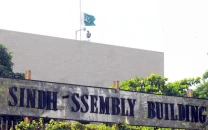
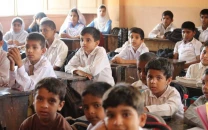
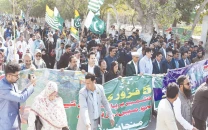
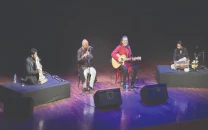














COMMENTS
Comments are moderated and generally will be posted if they are on-topic and not abusive.
For more information, please see our Comments FAQ